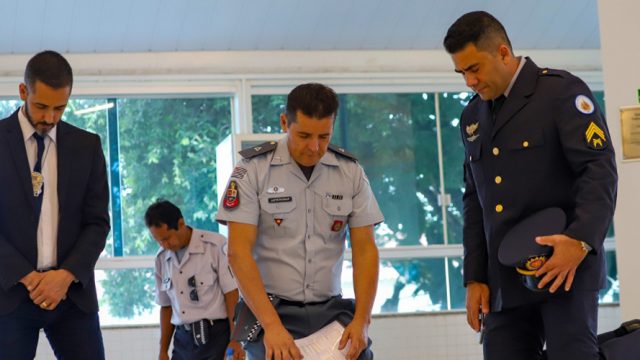The pandemic holidays may be keeping vulnerable people in isolation, but we can help overcome it.

For several years, Daniel Medina’s young adult group met every Friday evening for vespers and Bible study. Based at East Ridge Seventh-day Adventist Church near Chattanooga, Tennessee, United States, the group numbered as many as 20 and usually met at Daniel’s home. Then COVID-19 showed up.
Medina turned to Zoom for a weekly gathering, but the young members, from college age to around 40, soon began to comment that they felt discouraged and socially deprived. “People were just crying on Zoom and saying, ‘I haven’t seen anybody for three, four weeks, five weeks.’ It’s just not the same,” he said.
Gwendolyn Cordero, a student at Chattanooga State University, had to switch to studying at home, and when Medina’s group could no longer meet, she felt isolated. “All my life I thought I was introverted and OK not seeing people very often,” she said, “then when the lockdown happened, I realized that I needed more time with people than I thought.”
The group was finally able to restart gatherings in person, but only outside and with social distancing. Group members were emotional about the reunion.
“When we finally got to see each other in person again,” Cordero said, “I was just so relieved and thankful. The whole experience showed me that you just can’t take people for granted.”
In the holiday season, the burden of distance and isolation for church members is amplified. The weeks leading up to Christmas and New Year can be some of the most challenging of the year, especially for emotionally vulnerable people.
For congregations, contacting all the members during the pandemic is very important. Medina said the East Ridge church made a point of contacting every member early in the lockdown. He contacted all the young adults himself, one by one. Many churches have divided up the members into groups of 10 to 15 and assigned elders to contact them. My church, for example, has gone through two cycles of contact since March.
As we’ve reported several times in the past few months, congregations and individuals have reached out to connect with fellow members during the pandemic. With the onset of the holiday season, it’s time to do more. Here are some ways to connect.
Make a Call
Even if you’re not an elder, you can make calls! It doesn’t matter if your call comes right after someone else has contacted a church member. The more contacts made, the better.
Who to call? Start with those in your congregation who are most likely alone and have little contact with anyone. Check on acquaintances and people you used to say hello to, back when you could go to church. Think especially of those who are not using technology to connect with church online.
One upside to making calls is that you‘ll feel less alone yourself when you reach out and talk.
Here’s how to make your calls effective:
- Ask leading and open-ended questions.
- Don’t accept the first answer.
- Let the person talk.
- Speak honestly.
- Share a Bible promise that truly helps you.
- Keep track of who you contact and how often.
Group Calls
My church is investigating the idea of a daily prayer phone call that any member can join. We’re planning a roster of hosts so that no one person has to moderate the group call more than a couple times before the end of the year.
The time of each call will be limited to perhaps 15 minutes, and members who join are invited to share their burdens for a few minutes and have a prayer over the needs. The intention is to provide an opportunity for lonely or discouraged members to speak up and get things off their minds.
You may or may not be an organizer, but you can suggest the group-call idea to an organizer in your church.
Send a Card, Write a Letter
Surprise a lonely church member with some old-fashioned mail. It takes only a few minutes to write in a card, and penning a whole letter is an hour of investment in enriching the spirit of a fellow member who may desperately need to hear from someone.
A couple years ago, I wanted to thank one of the authors I worked with for some kind things she had done for me. I wrote a letter by hand (for the first time in years). She wrote back and said the letter brought tears of joy and lifted her spirits. In these COVID times, a note of appreciation will do twice as much good as before.
Next time you venture out to a store, look for postcards and buy a few. Send one to a lonely soul with a Bible verse like; “ ‘You will keep in perfect peace those whose minds are steadfast, because they trust in you’ ” (Isa. 26:3, NIV). Encourage the person to write back.
Text, Chat, E-mail
Medina said he has kept young adults connected to his group by texting or calling every one of them. He does not rely on blanket statements or announcements on social media or in e-mails. So don’t rule out texting church members to say you’re thinking about them and lifting them in prayer.
My daughters and I have used a Viber chat group for several years, and some of our most entertaining and encouraging connection happen there. Don’t be afraid to branch out and try reaching fellow members with chat apps like WhatsApp, Facebook Messenger, Google Duo, WeChat, and for the gamers among us, Discord.
E-mail remains a viable option, particularly for those who aren’t into chat apps. My colleague, Merle, said she contacts a shut-in member every couple weeks, and sometimes it’s as simple as sharing a new video or photos in an e-mail. She talks about what’s going on in her life so the church member is hearing news, and she asks questions too. Sometimes the member replies, sometimes not. The important step Merle takes is regular contact, regardless of the response.
Set Up a Video Call
A slightly more ambitious project is setting up a video call with someone you may not know well. Not everyone is comfortable on video, so you can start with a text to a church member and suggest a video call sometime. If they accept the offer, find out what platform they like to use, such as Zoom, Skype, or Webex.
They may be happy with a video call on a chat app like Viber or WhatsApp. You could offer a Friday evening or Saturday (Sabbath) call, or let them suggest a day and time and try to fit it in.
Create Social Dates
Have you thought about using video calls as extended social occasions?
My colleague, Gerald, said one way his family has reached out to members in need of contact is to cook enough food to share with those members as well as for his family, deliver part of the food to the members’ home, then return home and call them on Zoom. Both families can then share the meal virtually and converse as they do it.
Another option is to simply arrange to share a mealtime on a video call with an individual or family. Merle said, “We’ve invited people for zoom lunches [on Sabbath]. We have a blessing together and fellowship.” Gerald added, “We also open Sabbaths with people on Zoom.”
Give a Gift
Everyone likes a gift!
The Meridian Seventh-day Adventist Church in Idaho, though a small church, decided to give a gift to every church member this Christmas. Church member Kathy Beagles Coneff said the board ordered several cases of Mark Finley’s recent small book, Understanding Daniel and Revelation. “Each of the members will receive a copy of the book, written in and hand delivered by the elder assigned to them,” Coneff said.
What could you do? Perhaps send a small gift card to someone, or some flowers. Gift giving is one of the gifts of the Spirit. Enlist your imagination.
Social Media Still Works
Facebook is still in the palette of connecting media, especially for older members. Many of them rely on it for news of church members and far-flung friends and relatives. If you still use it, you may be able to identify individuals who show signs of needing some personal attention. You can contact them through Facebook Messenger, or better yet, give them a call.
Drive By
My colleague, Greg, said, “My wife had a birthday, so a bunch of the church members got together and formed a car caravan and drove by our house, honked their horns, tied balloons to our trees, holding posters out the window, wishing her a happy birthday. It made her feel wonderful.”
He suggested that something like this could happen around Christmas, to drive by people’s homes and wish them a merry Christmas. Be sure to contact church members first and let them know you’re coming. You can do this one car at a time, or you can make a caravan to drive by the homes of several lonely members. This is a good time to drop off a small gift as well.
The apostle Paul said, “The peace of God, which transcends all understanding, will guard your hearts and your minds in Christ Jesus” (Phil. 4:7). I believe the peace of God sometimes comes from the visitation of one child of God to another. This holiday season, let’s reach out and deliver that peace. And we will have the almost guilty pleasure of the blessing that comes from giving rather than receiving.








